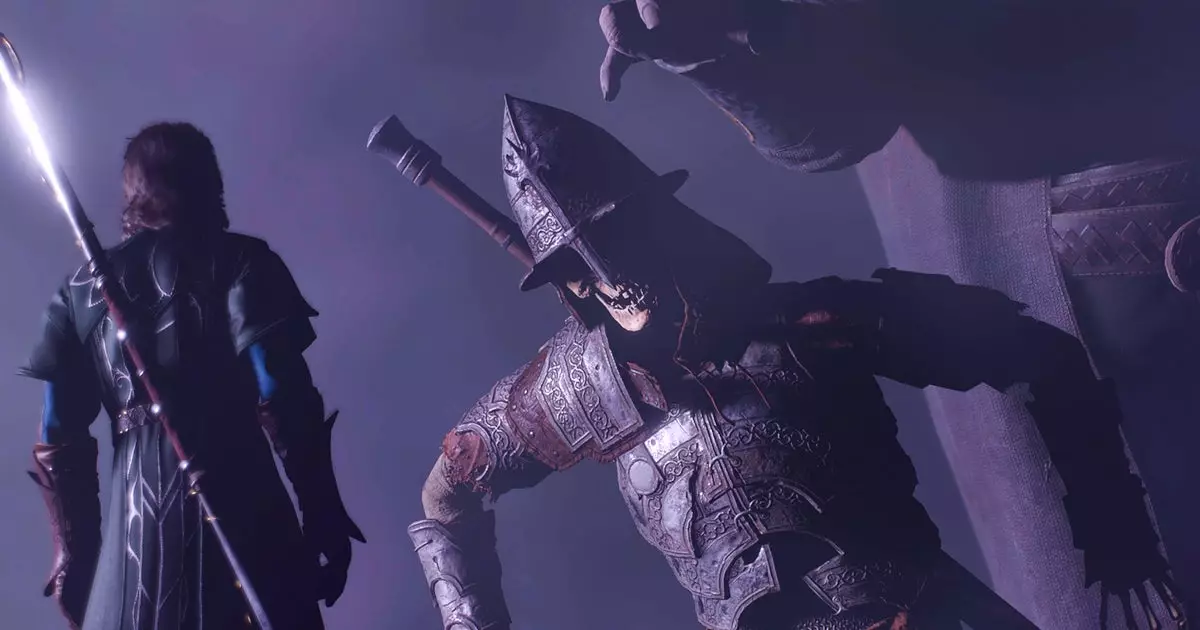In a world filled with colossal fantasy RPGs like The Witcher and Final Fantasy, the gaming community is perpetually on the lookout for the next big title that will deliver an unforgettable adventure. Enter Project Dante, an ambitious Dungeons & Dragons RPG developed by Hidden Path Entertainment, the studio better known as co-developers of Counter-Strike: Global Offensive. Recently unearthed footage and concept art have reignited discussions about this enigmatic project, which appears to have been steeped in both promise and disappointment during its development cycle.
The revelation that Project Dante was paused, if not outright canceled, alongside various other endeavors at Wizards of the Coast (WotC) has left fans and industry veterans alike scratching their heads. Following the unrivaled success of Baldur’s Gate 3, one might wonder how the creators of such a beloved IP made the decision to halt development on a project that could have further enriched the D&D universe. The digital breadcrumbs left by Hidden Path’s creative director, Michael Austin, indicate a shift in priorities and resources, ultimately leading to the unfortunate job loss of 44 employees, a chilling reminder of the fickle nature of game development.
The Lure of Immersive Gameplay
At the heart of the recent leaks lies gameplay footage showcasing players engaging in third-person combat reminiscent of Bioware’s Dragon Age franchise. Initial impressions reveal a classic setup involving a party of three adventurers battling against bandits, showcasing both action and cooperative dynamics that are hallmarks of exciting RPGs. The exploratory nature of Project Dante, highlighted by puzzle-solving sequences to restore magical water in ancient temples, adds a layer of depth that is often craved by console gamers.
However, the footage also begs the question: what set Project Dante apart from its contemporaries? A sketch of cats gliding through the skies doesn’t ignite one’s imagination to the extent these beloved creatures should. Despite a momentary whimsy, the project leaned heavily on tried-and-true tropes without introducing truly innovative mechanics or storylines that could captivate audiences eager for originality. While the character interactions and narrative did exhibit potential through quirky lines like “The thing is starting to do a thing with the stuff,” they risk becoming overshadowed by eye-roll-inducing clichés unless punctuated by more engaging content.
The Splatters of Cancelation
The emergence of the Project Dante footage raises eyebrows regarding the decision-making prowess at the helm of WotC and Hidden Path. How does a project with reasonable excitement generate buzz only to meet an untimely demise? The truth is harsh: game development is fraught with the possibility of failure. Creative plans often fall prey to internal assessments that prioritize profitability over passion, stifling projects that, while they may not have been perfect, could have added meaningful chapters to beloved universes.
Among the dregs of canceled development, hidden gems often go unnoticed, potentially robbing the industry of its next cult classic. Would Project Dante have managed to capture the hearts of D&D enthusiasts, much like its predecessor Baldur’s Gate 3? Or, strategically speaking, did WotC decide to focus on consolidating its resources amid an evolving gaming landscape, characterized by shifting player preferences and emerging technologies?
A Glimpse into the Future of RPGs
As the dust settles on the discovery of Project Dante, the gaming community must ponder the direction in which RPGs are heading. The appetite for innovation grows as audience expectations constantly evolve. Equipped with the lessons learned from prior failures, studios must interrogate their creative instincts. Audiences are eager for fresh narratives infused with new mechanics that can challenge the stereotypes associated with traditional fantasy RPGs.
The landscape of RPG development is nuanced, populated by significant successes and bitter disappointments. The demise of Project Dante serves as a cautionary tale that reverberates through every developer’s vision: innovation is key, but it must be tempered with practicality. As the industry seeks to balance risk and reward, the hope for fresh, captivating family-friendly experiences remains alive, even in the shadows of canceled dreams. In reflecting powerfully on the past, the future of RPGs may yet yield dividends that fans are willing to champion.


Leave a Reply